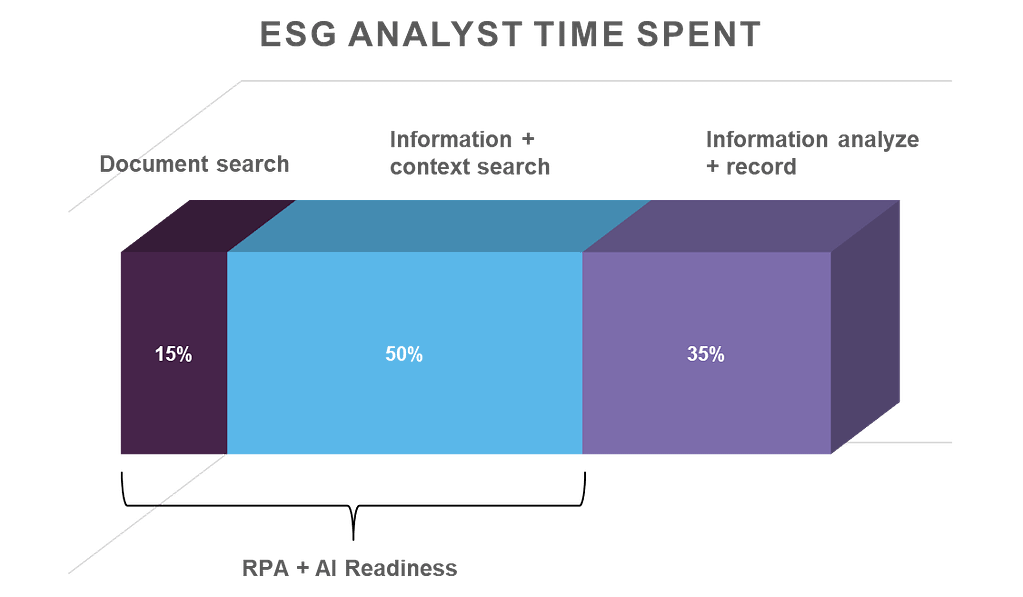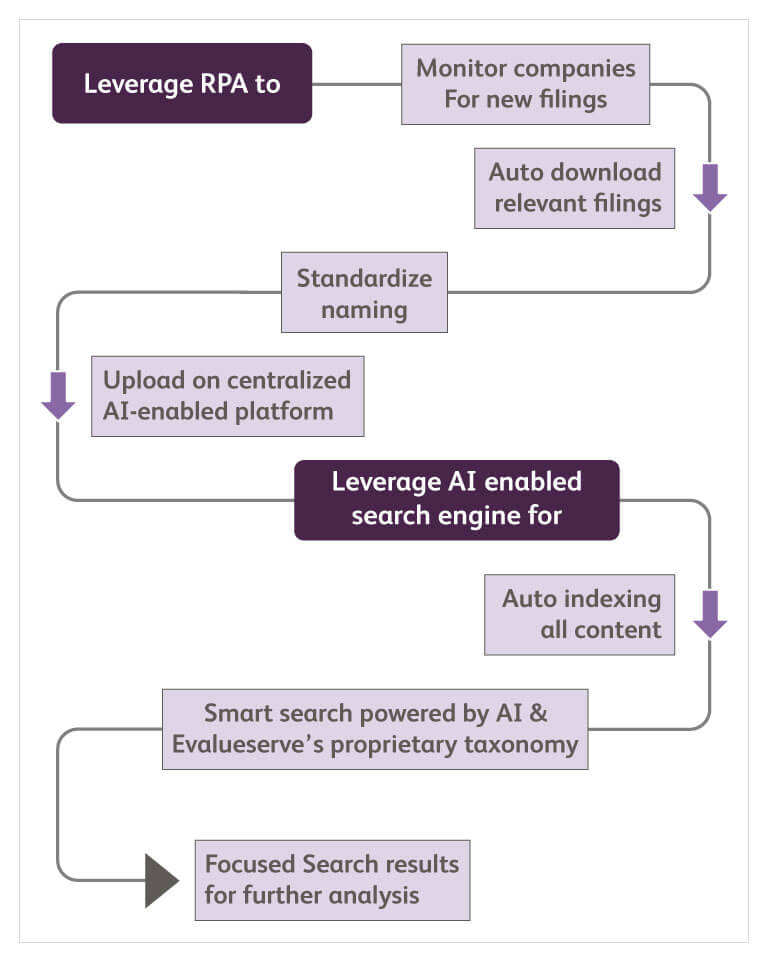The Covid-19 crisis has disrupted the global workforce in an unprecedented manner. Many firms and individuals will soon discover that their usual ways conducting everyday business is changing and their methods & techniques are challenged—or even worse obsolete. In a recent conversation with a wealth advisor, he mentioned that he is using webinar to interact with his clients for the first time in 40 years of his career. In another instance, a business manager of an asset management firm confessed that they are severely behind in their marketing data publishing (client reporting and factsheets) due to team disruption and overwhelming market requirements. On the other hand, a PE investment professional observed within their portfolio, companies that have systematized & automated their financial and customer reporting processes fared far better in reacting to the Covid crisis.
In certain industries like Financial Services, knowledge functions (especially in front and middle office) can be complex and manual, due to the information intensity at product and process level being very high. So how should business managers think about systematizing and automating such high complexity processes to build future resilience?
Developing resilience using RPA + AI for knowledge functions
The initial adoption of Robotic Process Automation (RPA) was focused on tasks/processes that were highly repetitive in nature and followed established business rules. The automation focused on many back and middle office processes including payment processing, customer services and financial reporting. However, RPA struggled in many highly analytical work processes where the tasks were not well structured, or when the ROI was not evident.
With recent developments in RPA (cognitive bots, etc.) and maturing AI/NLP capabilities, Evalueserve has been experimenting with re-imagining knowledge workflows with the power of RPA and AI. We believe the opportunity is huge, not only to systematize & codify parts of the knowledge value chain, but to also see this as an opportunity to generate new value, improve time-to-market and increase quality in the process.
Intelligent Automation—ESG Use Case at Evalueserve
Evalueserve has over 150 analysts that focus on researching ESG metrics for over 5,000 companies globally each year. The ESG knowledge process is highly domain centric with significant focus on detail, speed and accuracy as the team studies over 250 corporate performance attributes from company and public filing documents. Historically, the process has been highly manual for various reasons:
- Context of research is highly specific. For example, in understanding labor issues, the content varies across industries—Extractives, Manufacturing, Financial Services, will need to be embedded into the analysis.
- Reporting format & content across companies is different and lacks standardization (unlike financial reporting where there is uniformity). In addition, newer sources of information are identified every year due to increased company disclosures.
- NLP tools available off-the-shelf have built generalized industry and business taxonomy. However there is no true “one-size-fits all”, so in order to truly benefit from the ESG research at scale, we require ESG specific taxonomy.
Re-imagining the workflow
Evalueserve’s service design team analyzed the current workflow and broadly identified that analysts spend time as follows (more generalized for the purposes of this article): 
The analysts spend anywhere between 50-70% of their time in document research, information & context search, and light analysis. This is foundational for analysts to complete their analysis, however it is disproportionate to the value generated in this process.
In the re-imagined workflow, Evalueserve’s service design team, along with domain specialists, developed a new design that leverages RPA and NLP at scale and automated three time-consuming steps:
- The document search of 5,000 companies was automated using Automation Anywhere. This also included search, storing, and indexing the documents.
- For faster and more accurate information search on 250+performance attributes, we created ESG specific taxonomy on a smart search NLP platform (third party) that hosted the documents.
- Finally, we built targeted automations to the quality check process (such as checking logical inconsistencies, reading sector / geographic patterns and flagging Y-o-Y deviations) given the high volumes of data.

The business impact has been significant. The re-designed workflow is 24% more efficient for the analysts. In addition, the combination of bots and digital interface have significantly enabled teams’ ability to work remotely. This has been critical, especially in the current situation where globally, the workforce is disrupted and working from home. Paired with the codification of key knowledge attributes / quality processes (ESG specific taxonomy, quality routines), teams have been able to scale-up the process dramatically.
Key implications for knowledge intensive environments
Coming-out of the Covid-19 crisis, several firms will need to re-evaluate their knowledge functions and develop new strategies to systemize, codify and automate their workflows. AI and automation present a great case for expanding productivity, quality and resilience for analytical teams. The broad shift from information collection and management to insights and analytics by leveraging new tools and business processes, can positively impact time-to-market, create non-linear possibilities, and manage higher complexity in data operations.

